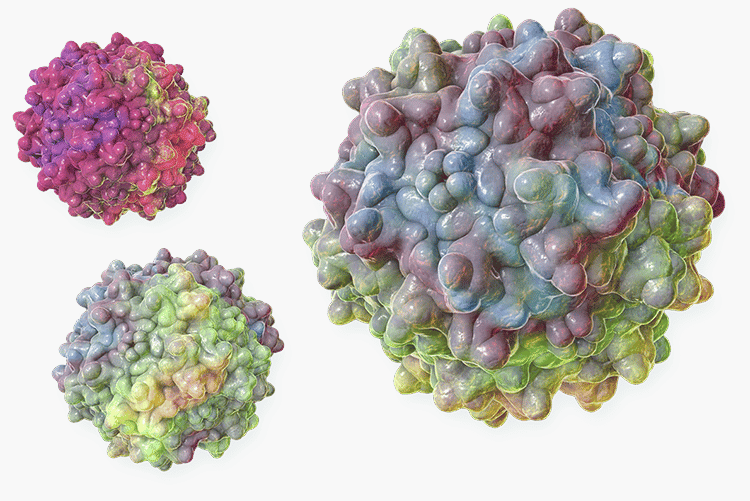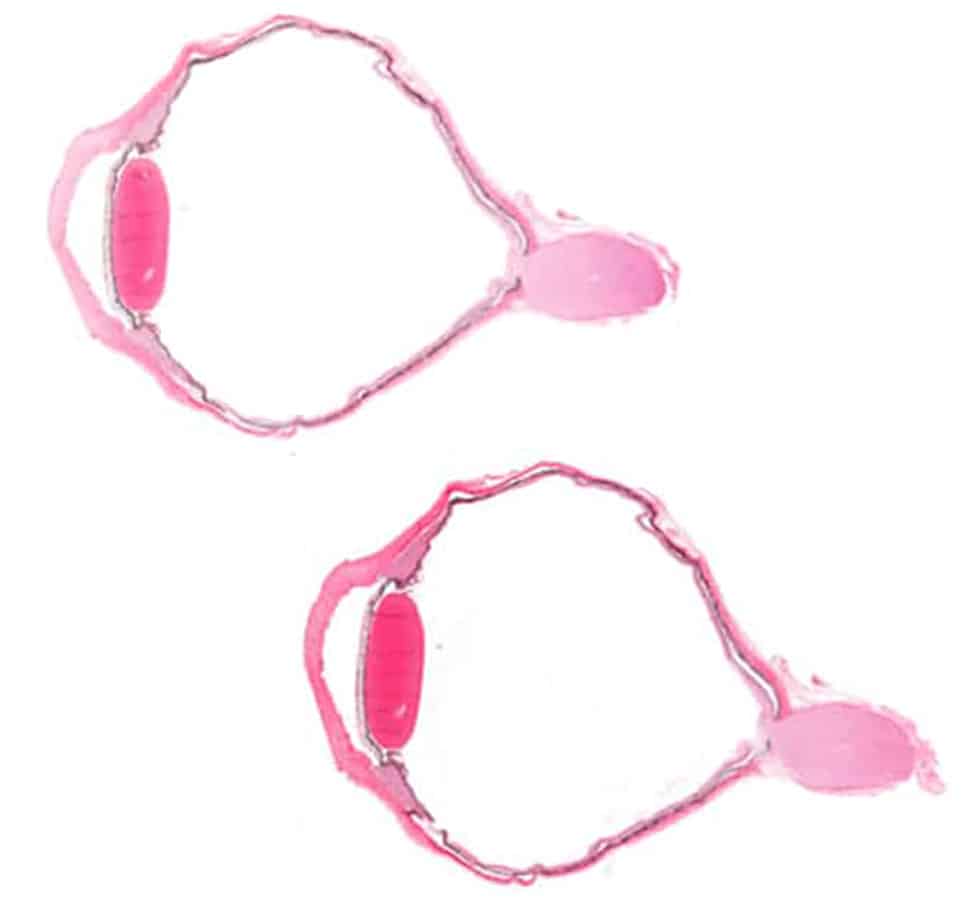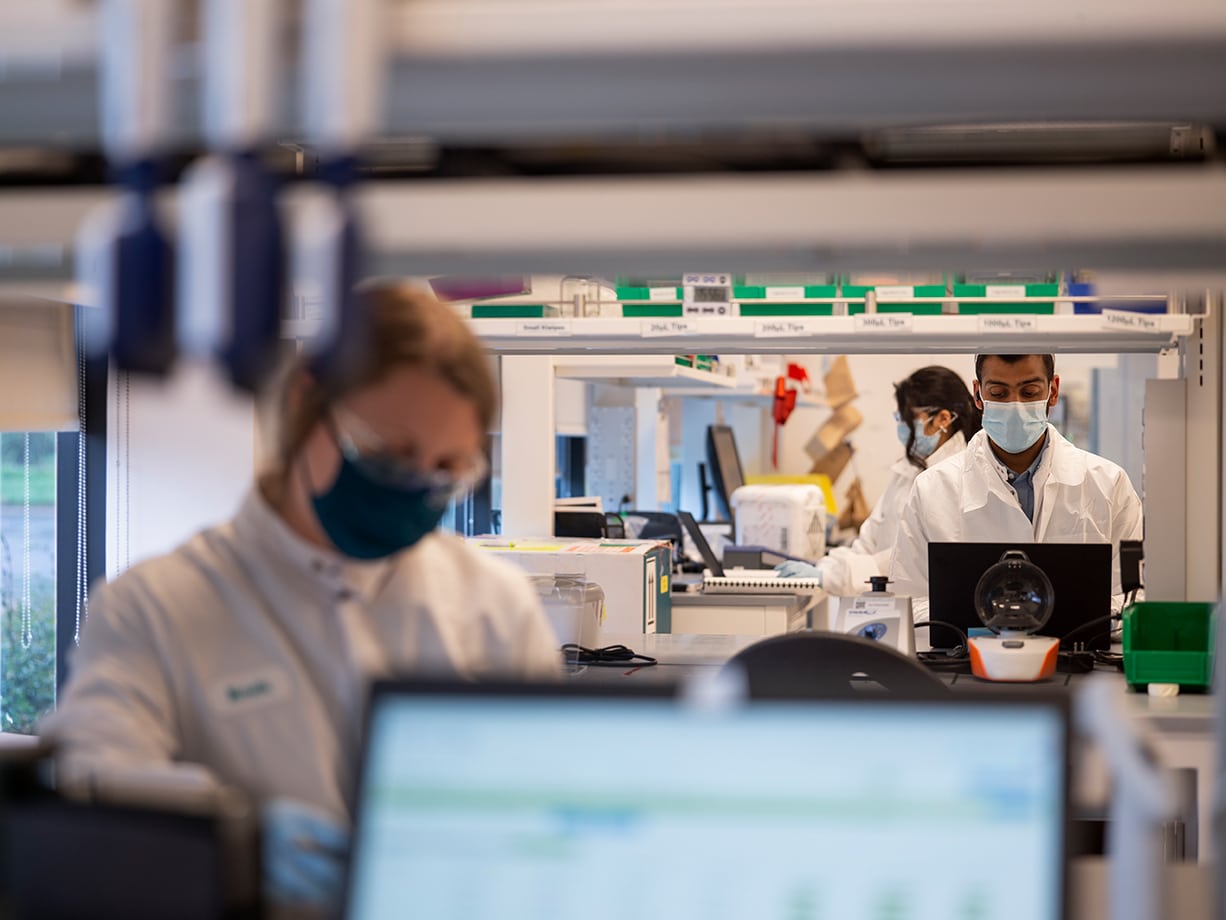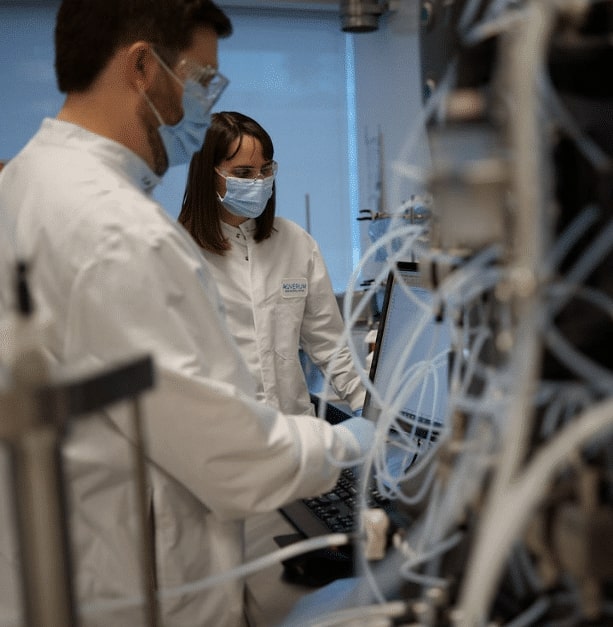Our Technology
Adverum explores new ways to deliver proteins by gene therapy to the eye. Gene therapy is a decades old field that focuses on delivery of genetic material to specific cells in the body to treat and even potentially cure diseases in some cases. Our current AAV.7m8 vector technology encodes retinal cells to become biofactories that provide robust, sustainable amounts of therapeutic proteins throughout the retina.
Reimagining What Gene and Ocular Therapies Can Do
Most therapies for ocular diseases attempt to extend the intervals between injections of anti-VEGF therapeutic agents by weeks or months. In contrast, Adverum aims to develop medicines that go beyond to deliver regenerative retinal therapies that can sustain their efficacy for years. In clinical trials, our lead candidate, ixoberogene soroparvovec (Ixo-vec, formerly referred to as ADVM-022), a vectorized therapeutic protein (aflibercept) treatment has demonstrated sustained durability and a promising safety profile from a single intravitreal injection with most patients free of supplemental injections well beyond one year.
While other gene therapies have traditionally focused solely on rare diseases, Adverum is focusing the development of our lead candidate, Ixo-vec, on a high prevalence, global health priority – wet age-related macular degeneration (wet AMD) – which afflicts more than 20 million people worldwide.
With our transgene delivery vector technology, manufacturing process and in-house process development, assay development, and GMP quality control capabilities, we are positioned to deliver gene therapy for widely prevalent diseases such as AMD, with the potential to fundamentally transform the treatment experience for patients, caregivers and healthcare systems.


Therapeutic Protein Biofactories
An Approach with Roots Embedded in our DNA
Biofactories are as old as human life. Our adaptive immune systems, for example, produce trillions of antibodies to fight threats and keep us healthy. When functioning properly, biofactories work non-stop to provide the critical biological proteins we need throughout our lifetimes.
Adverum’s novel AAV vector technology has been engineered to serve a similar purpose. Our lead candidate, Ixo-vec, uses our proprietary AAV.7m8 vector capsid to carry a coding sequence for the anti-VEGF protein aflibercept in order to transduce its production in retina cells. This allows Ixo-vec to deliver long-term VEGF inhibition following an intravitreal injection.
By turning the eye into a biofactory, Ixo-vec can potentially provide a functional cure for wet age-related macular degeneration (wet AMD), a common cause of vision loss.
Engineered for Sustainable Protein Expression
Our proprietary AAV.7m8 vector capsid carries a codon optimized sequence for aflibercept and is under the control of a proprietary expression cassette optimized for intravitreal injection. Both the capsid and cassette are engineered to enhance cellular expression of vectorized aflibercept, an anti-VEGF protein proven to be clinically effective and approved by the FDA.
Key Characteristics of the AAV.7m8 Vector Platform:
- A strong, ubiquitous promoter (a region of DNA that drives gene expression) designed for robust expression of aflibercept in retinal cells
- The ability to overcome notorious barriers to intravitreally delivered gene therapy (such as inadequate gene expression in the retina) by facilitating highly efficient and effective retina transduction following an intravitreal injection
- A peptide loop that allows AAV.7m8 to be efficiently injected intravitreally, cross the inner limiting membrane, and transduce retinal cells for effective targeting and delivery of therapeutic payload at the site of the disease


Efficient, Scalable Manufacturing
In order to treat hundreds of patients in our clinical trials and potentially reach millions of patients worldwide in the future, Adverum is developing flexible and scalable AAV chemistry, manufacturing and control capabilities utilizing our in-house expertise and CMO partners.
Our AAV vector manufacturing process is based on the Baculovirus Expression Vector System (BEVS) used in numerous FDA- and EMA-approved products. BEVS is particularly well-suited to produce large quantities of AAVs, as it takes advantage of the efficiency of viral infection coupled with the high density and scalability of insect cells grown in serum-free suspension cultures.